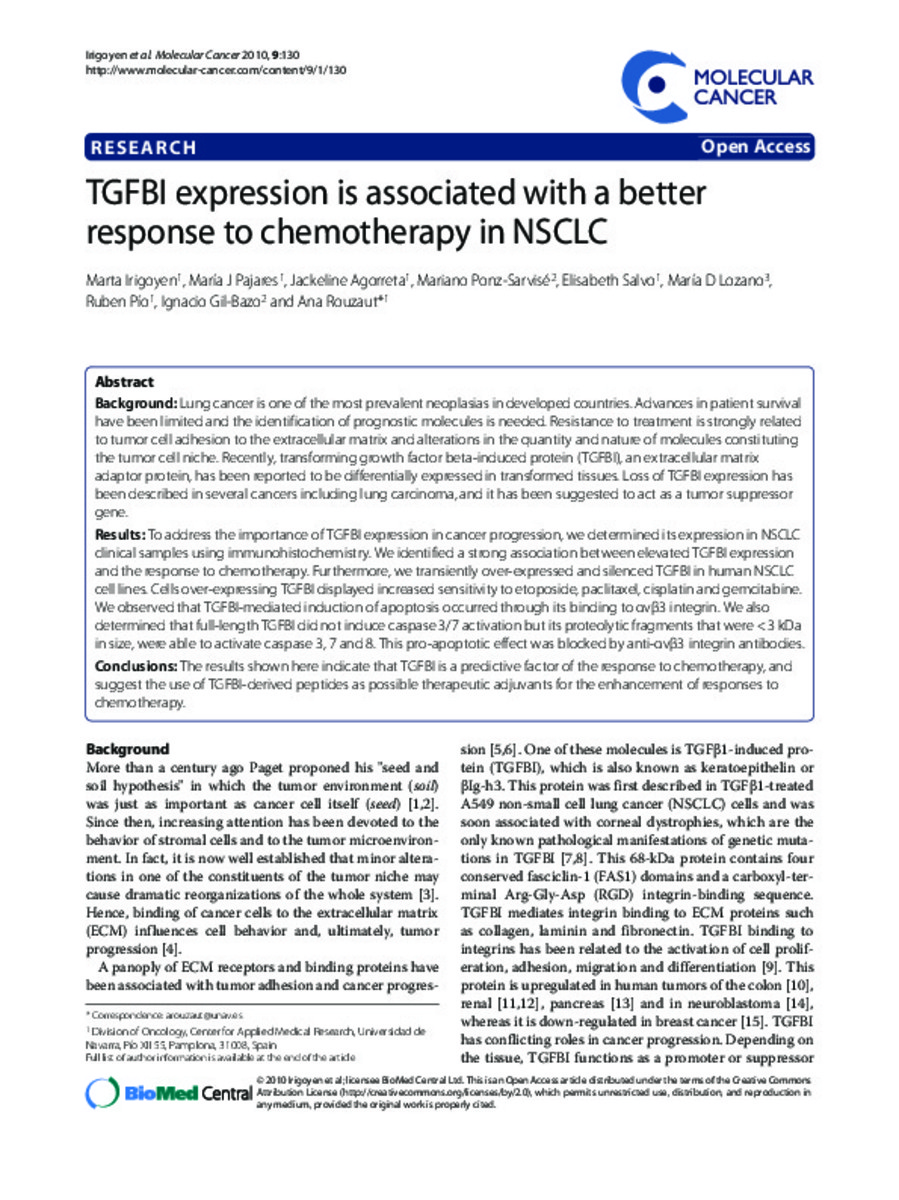TGFBI expression is associated with a better response to chemotherapy in NSCLC.
Palabras clave :
TGFBI
NSCLC
Fecha de publicación :
28-may-2010
Editorial :
Biomed Central
Cita:
Irigoyen M, Pajares MJ, Agorreta J, Ponz-Sarvise M, Salvo E, Lozano MD, et al. TGFBI expression is associated with a better response to chemotherapy in NSCLC. Mol Cancer 2010 May 28;9:130.
Aparece en las colecciones:
Estadísticas e impacto
0 citas en

0 citas en

Los ítems de Dadun están protegidos por copyright, con todos los derechos reservados, a menos que se indique lo contrario.










